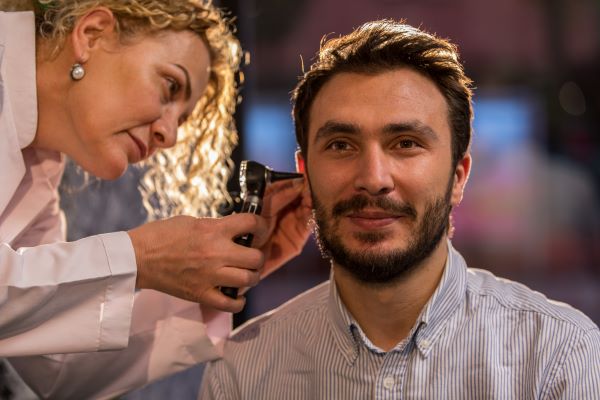A question we hear over and over again from new and prospective patients who are finally becoming comfortable with addressing the hearing loss they feel they might be experiencing is, “Is my hearing loss curable?”
It’s an absolutely reasonable question. But, in our estimation, there’s something deeper lying at the heart of that inquiry. What we as hearing health practitioners have observed in having served our community’s hearing healthcare needs for decades is, yes, they want to know if their hearing loss is curable, but just as much as anything they want to know if they’re going to be okay. Can they get their lives back? Will they ever feel normal again? Can things go back to the way they used to be?
While the reality is that hearing loss is not curable, it is treatable. Over the years, we’ve helped thousands of patients across the spectrum of hearing loss to get back to experiencing a life of sounds they didn’t even know they were missing.
So, if we can’t cure hearing loss, how can we treat it? And how do we know when it needs to be treated? And what else should we know about how we can all live a lifetime with the best hearing possible?
How do we treat hearing loss?
First things first. As your hearing care professional, we need the opportunity to test your hearing to understand the nature of your hearing loss. If you’re over the age of fifty, we recommend that you undergo an annual hearing exam so you can stay up to date with your overall hearing health.
When you first visit our practice, we like to take the time to interview you and a loved one about your hearing loss experience. Why? Sometimes having an outside perspective can give us a clearer picture of the sounds you’re missing. For instance, we’ve interviewed countless couples who have expressed disagreement with how loud the television should be. There are countless things that we learn to live with over time that can be indicators of a hearing loss. (And if you don’t have a companion you can bring along with you to your appointments, that’s okay, too! We’ll deliver you the best hearing care possible no matter what.)
After we’ve had the opportunity to conduct these interviews, we’ll do a series of non-invasive tests in order to understand your overall ear health and ultimately create your audiogram. Your hearing care professional will use a tool called an otoscope to examine your ear canal and your tympanic membrane (your eardrum). In some instances, we’ll discover that your ear canals are plugged with cerumen, or earwax, and can be cleaned professionally in order to improve your hearing, but we won’t fully know until we’ve completed your audiogram.
Your audiogram’s results will map your hearing against what is considered to be the normal range of hearing. In order to get your audiogram even more precise, we use a tool called real ear measurement. Your hearing’s deviations from what is considered normal will help us determine what type of hearing technology, if any, are recommended to treat your loss.
How do I know what hearing technology is right for me?
If we’ve determined from your test results that you’re a candidate for hearing technology, then we’ll use the information that we learned from our conversations and your audiogram (in addition to any other tests that might be deemed necessary) in order to discuss what types of hearing devices are best for your type of hearing loss, the way you live your life, and the way you want to hear!
For instance, we work with a lot of people who love to have Bluetooth-enabled hearing aids so they can connect to their smartphones, tablets, other devices for listening to music, connecting to Bluetooth-enabled televisions, or talking to loved ones. You can connect these devices to smartphone apps for creating different listening preferences depending on where you are or your activity, or for fine-tuning certain details. Not a smartphone user? No problem! It’s not at all a necessity. We offer the widest range of hearing technology available, and focus on tailoring our recommendations to what you want to get out of your investment.
How can I protect my hearing moving forward?
Another important consideration we discuss with our patients is how to further protect their hearing once they know they have a diagnosable hearing loss.
Wearing appropriately fit hearing technology is one key step. Seemingly small things like listening to music or the television at volumes that are too loud will cease, and your brain will also retrain itself to hear some of the frequencies that it was previously missing, meaning it won’t have to work as hard. You might feel more energy and engagement in social situations.
Another absolutely crucial consideration is having an annual hearing exam. If we’re able to understand how your hearing is changing over time, then we can make the adjustments needed to your hearing technology that complement your experience. Relatedly, we like to have our patients come in at least twice a year so we can have your devices professionally cleaned and make any important adjustments, all of which are a standard part of our free comprehensive aftercare program called BelCare!
You can experience better hearing!
The first step is making an appointment with a trusted hearing professional. We’ve gained a reputation in our community for delivering great care because we take the time to listen to our patients’ needs before providing any recommendations. You deserve to live a life with the best hearing possible. If you or a loved one could benefit from hearing care, please call today. We’d love to serve you!

